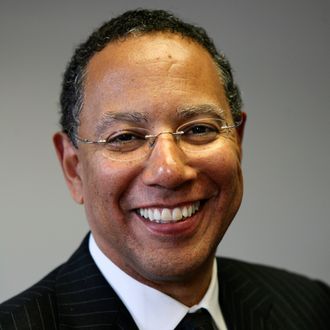
While the saga of Jill Abramson’s firing appeared to be winding down in the past few days, one key player had yet to weigh in: Dean Baquet, the man who replaced her as executive editor of the New York Times. In an interview with NPR’s David Folkenflik published Thursday night, Baquet praised his predecessor, saying he has “tremendous respect for her,” and predicted that in three years, people will only remember that “she was a great journalist and a landmark editor.” However, he admitted that his complaints about Abramson while serving as managing editor led to her dismissal, and said she lost her job due to her poor relationship with senior editors, not sexism. “It’s hard to run an organization if you are at odds with the publisher, with your leadership team, including your number two,” Baquet said. “Obviously, there was a significant disagreement between Jill and the publisher, and Jill and me.”
Baquet didn’t delve very deep into his clashes with Abramson, but he confirmed that he told publisher Arthur Sulzberger Jr. that he was upset by her efforts to hire The Guardian’s Janine Gibson as co-managing editor — though he denied reports that he issued an ultimatum. “I never said to anyone it’s me or Jill. I think that’s a simplistic calculation,” Baquet said. “I don’t think there’s any question that I made it known that I was a little unhappy.”
Folkenflik reports that since taking the helm, Baquet has gone with a softer approach than Abramson, and recently he’s been calling reporters and editors to “calm them down and seek their expertise.” “I don’t think it’s any secret that my rise to be executive editor was preceded by a period of turmoil,” Baquet said. “One of my first jobs is to make sure that the turmoil which was inevitable doesn’t get in the way of what The New York Times does best. So I want to hear from people if they have suggestions for how I can do it.”
While he claimed that he wasn’t commenting on Abramson’s management style, Baquet went on to criticize the nostalgia for difficult editors. “One thing that people say is newspapers always have tough [leaders]. I mean I’ve seen many elegies to ‘the city editor who changed my life because he was really nasty to me for six months and it made me a better person.’ I think that’s nuts,” he said. “I don’t think that leaders have to be or should be rough on their people. Leaders have to make tough decisions.”
He’s been rough on walls, though. Baquet admitted the reports that maps were hung up in The Times’ Washington offices to cover up holes he punched in the walls were true, explaining, “I have a temper.” He added, “In each case I was mad at somebody above me in rank. That’s not an excuse, but it’s a fact.”
Baquet remarked, “I do not believe, by the way, that Jill was fired because of gender,” but his interview does nothing to settle the question of whether Abramson’s downfall was caused by her managerial style, her gender, or a combination of both. Amanda Bennett, the former Philadelphia Inquirer editor who was fired after leading the paper for less than three years, told NPR that many female leaders feel they’re caught between two extremes. “If you are kind and nice and supportive in [a] way that would be very welcomed in a male boss, you’re seen as soft,” she said. “And if you’re aggressive and pushy and demanding, you’re seen as too hard.” Whatever her personal failings, walking the line between being a supportive boss and one who throws her fist into walls was likely more difficult for Abramson than for Baquet.






























